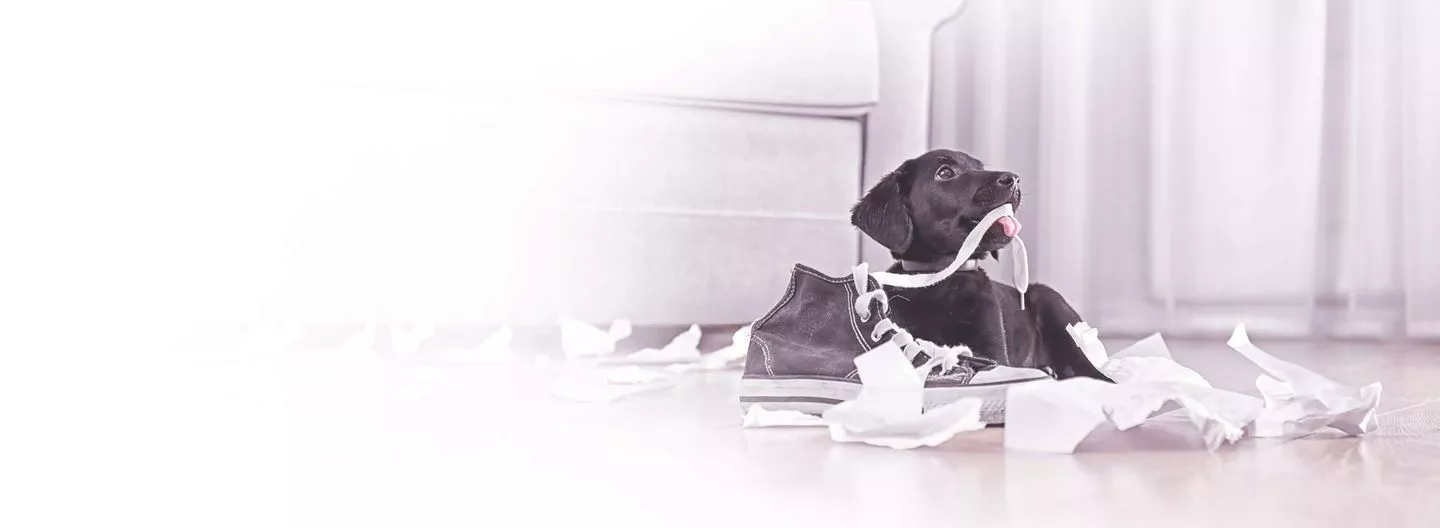


Tips for the playful training of the first commands and for staying alone
A puppy goes through an incredible development in the first twelve to eighteen months of its life, for which we humans need two decades: from birth to childhood to puberty, to sexual maturity and adulthood. It is important that the person adapts his upbringing, the way he deals with the dog and what he demands from his dog to the various stages of development so that he becomes a trustworthy, open dog. When your new resident comes into the house, please remember that he has to digest a lot of new things in a very short time, He no longer has his familiar surroundings, his siblings and his old family around him, and frst has to get used to his new people and the new surroundings. Give him time! With all the love and even if you have hearts in your eyes at the sight of the little four-legged friend and melts away, there will be times when you would like to shoot him to the moon without a return ticket, for example, if he just bit the third pair of your favorite shoes. At the latest then it becomes clear that one should start with the basic education of the puppy. The following tips are limited to a few but basic points, because they are the most important thing the dog child has to learn,
Routine is everything! The smaller the dog, the smaller its bladder. Accordingly, a puppy's bladder is very, very small, and bladder muscles to "stop" need to develop
over time. So punishing him for going into the house doesn't do anything, except that he starts to be afraid of you. It is up to you to determine whether and when
the dog needs to go outside and then bring it out immediately, always in the same place if possible so that it can recognize its smell.
An eight-week-old puppy can normally "hold out" for about an hour and a half when awake. At the age of three months, he already manages two to three hours
(unless your puppy rages and plays, just wakes up, has just eaten or drunk). Even adult dogs have to loosen at least four times a day on average.
An eight-week-old puppy can normally "hold out" for one to one and a half hours while awake. By the age of three months he can already manage two to three hours (unless your puppy is raging and playing, is waking up, has just eaten or drunk). Even adult dogs have to loosen up at least four times a day on average.

The most important command in dog training is undoubtedly “Come!”. A dog that comes back reliably has more freedom, can run without a leash and play with other dogs. Therefore, you should put all your time and care into this command. Go to an enclosed area with your puppy and start: Call your dog's name and pair it with the “Come” word that you will use from now on, ie “Fiffi come!” Or “Fiffi to me! ", Or" Fiffi here! "- it is important that this word stays true. And then start running. The puppy will follow you at a happy gallop, because he doesn't want to lose you. Stand still, crouch down, let the little one come over and give him a biscuit as a reward. And then you repeat the whole thing. Practice the "Come!" With your puppy 20-30 times a day, also in the house,
It becomes more difficult to call him when he has something really interesting in front of his nose. A dog that is only five months old will not be able to do this because in case of doubt it will not hear you at all when it is playing and romping with another dog. So don't waste your command, just get it in such cases. But if he's messing around in the garden alone, call him in an auspicious, happy voice and give him a cookie as soon as he's there. The more difficult the situations you call the puppy out of, the better the reward you have to offer him, because he really has left something better to come to you.
